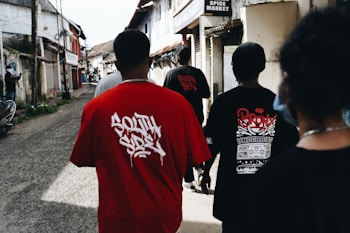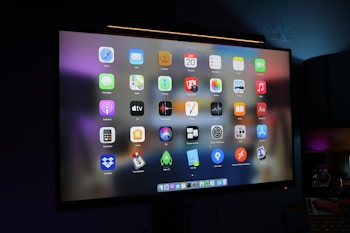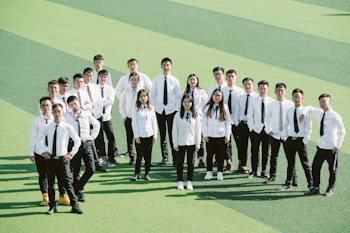 Chinese
Chinese
Vocab Builder for commonly used words in Chinese.
officiate
In Chinese, the word for 'officiate' refers to the act of overseeing or conducting a ceremony, especially in formal contexts such as weddings, sports events, or religious services. It implies a role of authority and responsibility where the officiant ensures that the proceedings follow established traditions or regulations.

一
In Chinese, '一' is used to represent the English word 'a'. It is commonly used in front of a noun in Chinese language to indicate a singular quantity, just like 'a' in English.
Example sentences with 一 →
一些
The Chinese word for 'some' is '一些'. It is used in the same way as in English, to indicate an unspecified amount or number. For example, 'I need some apples' translates to '我需要一些苹果'.
一共
In Chinese, the term '一共' is used when they want to express the total amount/count/quantity of something. Like in English, the term 'altogether' is being used to show the comprehensive quantity of any subject. It is mostly used in both formal and informal contexts.
Example sentences with 一共 →
一切
'一切' is a Chinese word that is used to refer to all things or everything in a comprehensive way, encompassing all parts, aspects or details. It is used in various contexts, just like 'everything' in English.

一刻
In Chinese '一刻' means quarter, usually used to refer to a quarter of the hour. It can also be used to describe a portion or sector, but it is less common. Similar to English, '一刻' can also mean a moment or a brief period of time.
Example sentences with 一刻 →
一半
一半 (yībàn) translates literally to 'one half' in English, and its usage is pretty identical to English. It can be used to refer to half of an object, an amount or a quantity, time, etc. It can be used in both a literal and a figurative context. It can also be combined with other words to create different meanings. For example, 一半天空 (yībàn tiānkōng) refers to 'half the sky', a phrase often used to emphasize the importance of women in society.

一口喝
The phrase '一口喝' is used in Chinese to describe the action of consuming a beverage quickly without pausing for breath. It emphasizes the speed and completeness of the action, often referring to drinking a glass of water, tea, or any liquid in a single motion, conveying a sense of urgency or thirst.

一堆
The Chinese word '一堆' is used similarly to how 'bunch' is used in English. It refers to a group or collection of things, or sometimes, people. This could be a bunch of flowers, a bunch of keys, or even a bunch of people. The concept hinges on the idea of multiples combined together.
Example sentences with 一堆 →
一夫一妻制
The term '一夫一妻制' refers to the practice or state of being married to one person at a time. It emphasizes the idea of having a single marital partner as opposed to polygamy, where a person may have multiple spouses. In Chinese culture, monogamy is often associated with traditional family values and the pursuit of a stable and committed relationship.

一夫多妻制
The Chinese word 一夫多妻制 refers to a marriage system in which one man is allowed to have multiple wives. This concept is often seen in certain cultures and religions where polygamous unions are accepted or practiced. The term emphasizes the role of a single husband with multiple partners, highlighting social and legal aspects of such relationships.

一对
In Chinese, '一对' is used to refer to a pair or a couple of something. It is often used in contexts where items come in twos. For instance, a pair of shoes would be '一对鞋'. Just like in English, it can be used in both a literal and abstract sense.
Example sentences with 一对 →
一旁
The Chinese word '一旁' translates to 'aside' in English. This word is generally used the same way as in English - to indicate that something is to the side or NOT the main focus. For example, you could put your bag '一旁' or to the side. The word can be used in both formal and informal contexts and it doesn't have any particular connotations that learners need to be aware of.
Example sentences with 一旁 →
一月
January is the first month of the year in the Gregorian calendar. In Chinese, it's referred to as '一月' (yī yuè), where '一' means 'one' and '月' means 'month', indicating that it is the first month. This term is commonly used in both spoken and written Mandarin to denote this specific time of year, often associated with the cold winter season in many regions.
Example sentences with 一月 →
一杯水
The phrase '一杯水', which literally means 'a cup of water', is used in Chinese to refer to a glass of water, often in contexts where you are ordering or requesting water to drink. It can be used in both formal and informal settings, and it implies the quantity of water being asked for or served.

一次
The Chinese word '一次' is an adverb mostly used to mean 'once' or 'one time.' It can be used to refer to an occurrence that happened one time in the past, is happening now, or will happen in the future. It is often used in conversations or sentences to denote the frequency of an event.

一群朋友
The Chinese phrase '一群朋友' refers to a group or gathering of friends. It is used to describe a social setting where a definite number of friends gather. It can be used in a sentence much similar to its English counterpart. For example, '我和我的一群朋友去夜店' translates to 'I am going to the club with a group of my friends.'
一致
The word '一致' is used in Chinese to describe something that does not change and stays the same. It is often used in context where one is talking about consistency in actions, attitudes, characteristics or results. It can also indicate agreement or unanimity among a group.
Example sentences with 一致 →
一致性
The Chinese word '一致性' refers to the state or quality of always acting or behaving in the same way, or of always happening in the same way. It's often used in daily conversation, academia, programming languages, documentation among others, where uniformity or coherence is needed.

一般
The Chinese word '一般' is an adjective that is commonly used to describe that something is ordinary, common, general, or usual. It can be used in various contexts such as describing an object, a situation, or a person. For example, '一般人' means 'ordinary people' and '一般情况下' means 'usually' or 'generally.',

一起
The Chinese word for 'together' is '一起'. It is used to indicate doing something with someone or something, much like how 'together' is used in English. It is used in both casual and formal contexts.

一起生活的年份
The phrase '一起生活的年份' refers to the number of years that two or more people have cohabited or shared a life together. It is commonly used to denote the duration of a relationship, such as a marriage or partnership, and emphasizes the time spent together, highlighting the experiences and memories created during that period.

七
The Chinese character '七' refers to the number seven. It is part of the counting system and can be used in date, time, quantity, and many other places in Chinese language that require numerical value.

丈夫
The Chinese word for husband is 丈夫. It is often used in the same context as in English, to refer to a married man considered in relation to his spouse.

三
The Chinese word for 'three' is '三', pronounced as 'sān'. It is used in the exact same context as the English word 'three'. For example, when counting numbers, talking about three of something, or mentioning the third item or person.

三十
In Chinese, '三十' (sān shí) represents the number thirty. It is formed by combining '三' (sān), which means three, and '十' (shí), which means ten. This word is commonly used in counting, telling age, and indicating time, as well as in everyday conversations when discussing quantities, prices, or any context requiring the representation of the number thirty.

三明治
The Chinese word for 'sandwich' is '三明治'. It is often used in the same context as it is in English. It can refer to a meal consisting of two pieces of bread with meat, cheese, or other fillings between them, or to express this dish in places like restaurants, menus, food-related conversations and writings.
Example sentences with 三明治 →
三月
The Chinese word '三月' is used to denote the third month of the year, which is March in English. Similar to its English counterpart, it can be used in various contexts where reference to this particular month or timeframe is necessary. It neither denotes a verb such as 'moving forward' nor a type of music as in English context.
Example sentences with 三月 →
三胞胎
The Chinese term '三胞胎' refers to three children born at the same time from the same pregnancy. This term is commonly used in medical and family contexts to describe this specific scenario of multiple births. It conveys a sense of uniqueness and joy, as having triplets is relatively rare compared to having single or twin births.

上
In Chinese, the word '上' corresponds to the English term 'up'. It is frequently used in the same context as in English, to denote something that is at a higher place or position. It is used as an adjective, verb or preposition based on the context. The setup and structure of the sentence often helps determine its exact meaning. However, it may also have idiosyncratic uses such as indicating the fact of being in use or operation (as in 'the computer is up').
Example sentences with 上 →